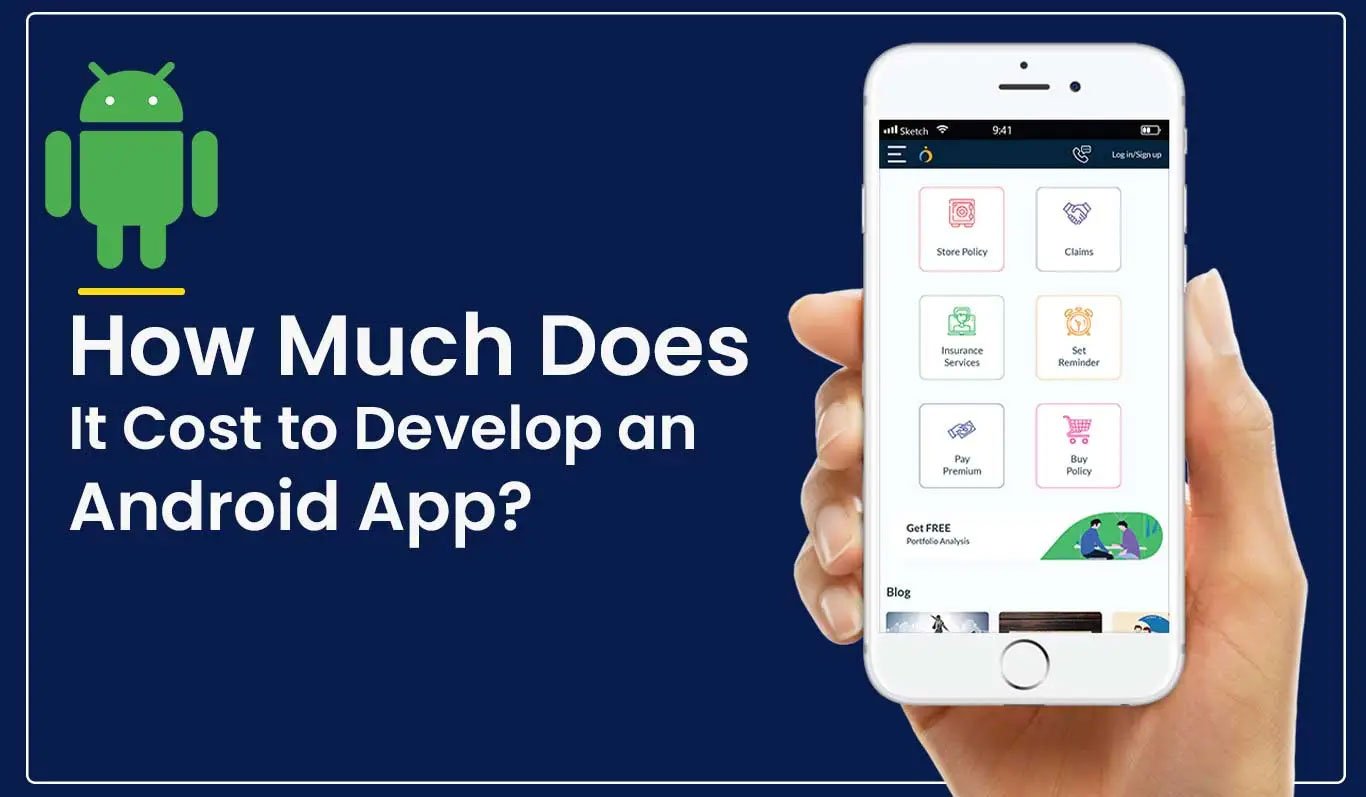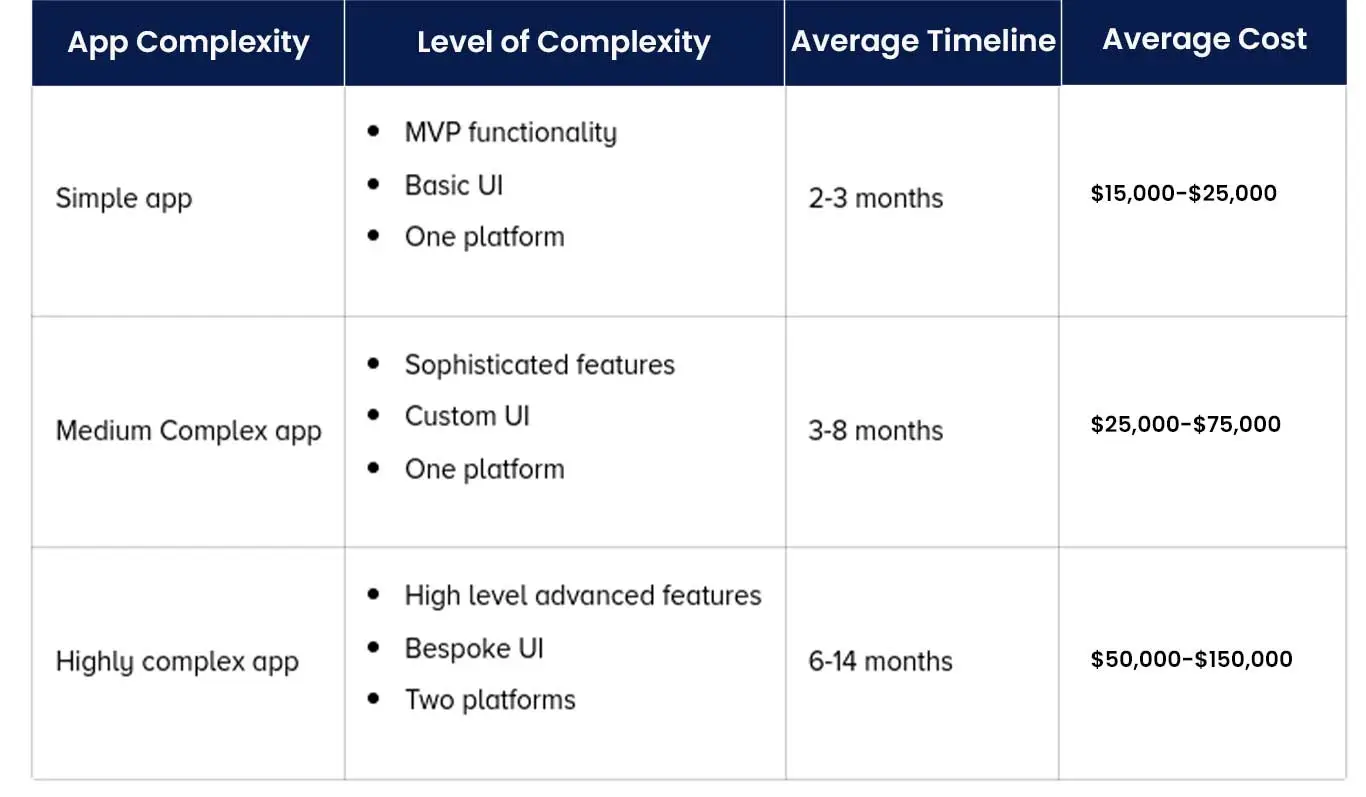How Much Does It Cost to Develop an Android App?

The predicted market volume for worldwide mobile application development is $620.40 billion by 2026, with a CAGR of 9.28% from 2023 to 2026.
An Android app development cost can range anywhere from $20,000 to $300,000, depending on the specifics of your project, to give you a quick sense of the cost.
The cost of producing an Android app depends on variety of factors. In this article we will provide all detailed information for Android app development, the cost, variables and ways to save money while creating Android app.

Factors That Determine The cost of developing an Android apps in 2023
Business Model Type
Over 24.6 billion USD were spent by customers worldwide on mobile app development. Moreover, 189 billion or more applications were downloaded annually, and 268 billion are expected to be downloaded by 2022.
Fundamental elements like company type, target audience, and the services will help to define the app budget design. The cost increases with the level of complexity demanded in the business app model.
Android App Development Team
Businesses can rely on any android app development company. It requires skilled development team, including domain expertise. Third-party app development company can benefit businesses in a variety of ways. A solid app development business would have resources with knowledge in a variety of fields and would provide unique and outstanding service.
App Developing Platform
Depending on the company strategy, a platform for developing mobile apps would be selected. If the service requires an app, it must be made available on popular operating systems like Android and iOS. There are two options available for app development: native and hybrid.
Majority of businesses create native and hybrid applications, especially for Android and IOS, to grow the business possibilities. Another type is web applications, which are full-featured versions of websites optimized for mobile devices.
Particularly since native Android applications need more time to code, layout, and fragmentation, it increases budget percentage. IOS has the benefit of having a limited number of screen sizes and variations, which allows app development businesses to create their products within time frame.
Design and Functionality of Apps
Depending on the design and functionality, the price of developing an android app varies greatly. Advanced features must be included with the service's specifications to ensure smooth task completion. Better user experience and user-centered interface and top-notch design must also be included. Real-time service-based applications and list-based apps both have various cost factors associated with the app development process.
The more user-centric design is necessary for a superior app experience as complexity rises. For eg, program that control content flow, payment gateways, user data backup, etc., need to operate on the network.
Features and Testing for Apps
Another challenge any program must overcome is testing the functionalities to guarantee a trouble-free service. The time required to develop and test features increases along with the quantity and complexity, which has a knock-on effect on cost.
Eg: Fleet delivery app fundamentally leads the start to the finish of the process with different service integrations such as location, communication, payment, and the real-time status; a payment app comprises of a lot of security measures with an easy navigation interface. As a result, the cost associated with developing an app cost rise.
UI/UX Design
User interface (UI) and User Experience (UX) are essential for the success of the application. Distinctive UI/UX app design is difficult to make, and it will cost more. Applications must include UI/UX elements like push notifications, icons, visual pictures, and customization for creating a long-lasting impression. With a simple design, consumers will want to use the app more frequently and won't eventually stop using it.
Android App Updates and Maintenance
Mobile apps frequently need to be updated, or maintained. Applications cannot function properly without the technical help of app developers. As the app platform evolves into cutting-edge technology, businesses must upgrade the app connections and capabilities. API maintenance is a regular requirement for enterprise-level apps in order to enhance user experience and continuously develop the apps.
App Security
Despite the fact that app security is crucial, many businesses ignore it. Data gathered from users must be kept secure by your application because losing data might provide the wrong impression to both current and future clients. It is recommended that you invest in data security investments when the application is being developed because a serious security breach might ruin your company.
Type and Category of Android Apps
There are various types and categories of Android apps available on the Google Play Store. Here are some of the most common types and categories of Android apps:
Utility apps – Utility apps are designed to perform specific tasks such as managing files, cleaning up storage, and optimizing device performance.
Social media apps - Social networking applications can access hardware features like cameras, audio recorders, etc. since they are created using third-party integrations. These apps allow users to connect and communicate with others, share content, and interact with online communities.
Entertainment apps - Entertainment apps provide users with a range of entertainment options such as streaming videos, playing games, and listening to music.
Productivity apps - These apps help users manage their work and increase productivity by providing tools for scheduling, note-taking, and project management.
Education apps – Education apps provide educational content and resources for users to learn new skills and knowledge.
Lifestyle apps - These apps cater to the lifestyle needs of users, providing features such as fitness tracking, recipe management, and shopping.
Travel apps - Travel apps provide users with travel-related information, such as booking flights, hotels, and activities.
Conclusion
There are a variety of additional variables that contribute to rising costs for mobile app development. The time and expense associated with it rises as the features and functions do as well.
App complexity is further increased by the incorporation of cutting-edge technology partners like AI, BlockChain, and cloud-based services. As a result, the variables affecting the cost of developing an app vary greatly depending on the variety of features and services used.
Request a Quote
Categories
Popular posts
Best Practices for Software Product Engineering Every CTO Should Implement
2023-14-18How to Build Your Own On-Demand Carpooling App Services?
2023-08-25How to Start an On-Demand Fuel Delivery Business: A Comprehensive Guide
2023-07-28Empowering Miners: How Fleet Management Apps are Transforming the Mining Industry?
2023-07-21A Complete Guide to Develop a Food Delivery App for Restaurants in 2023
2023-07-08Mobile Apps Transforming the Travel Industry: A Game-Changer in Travel Planning and Experience
2023-07-07
